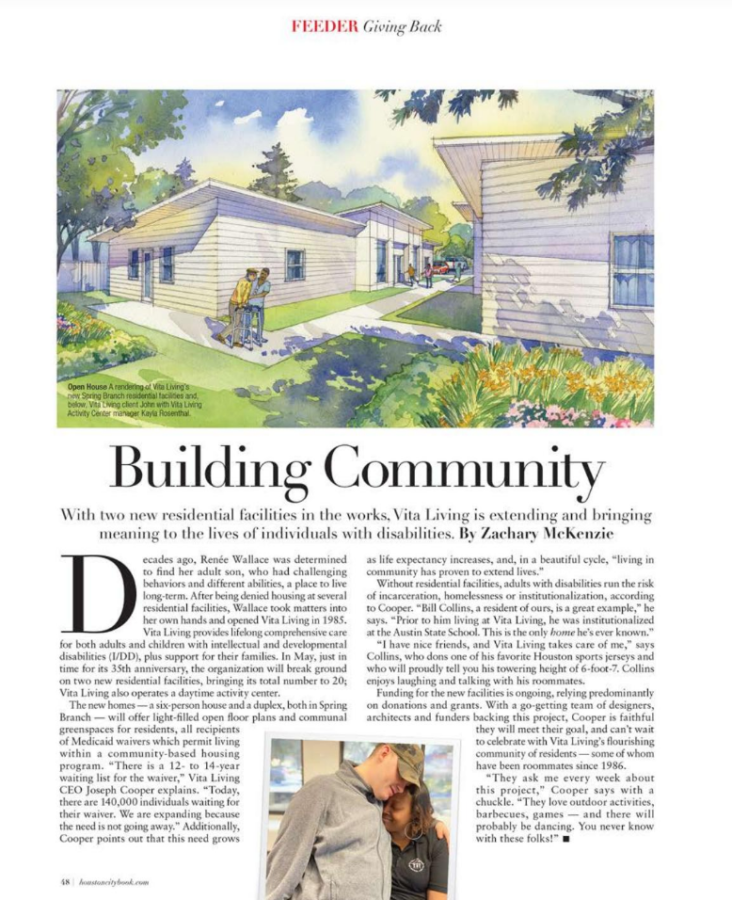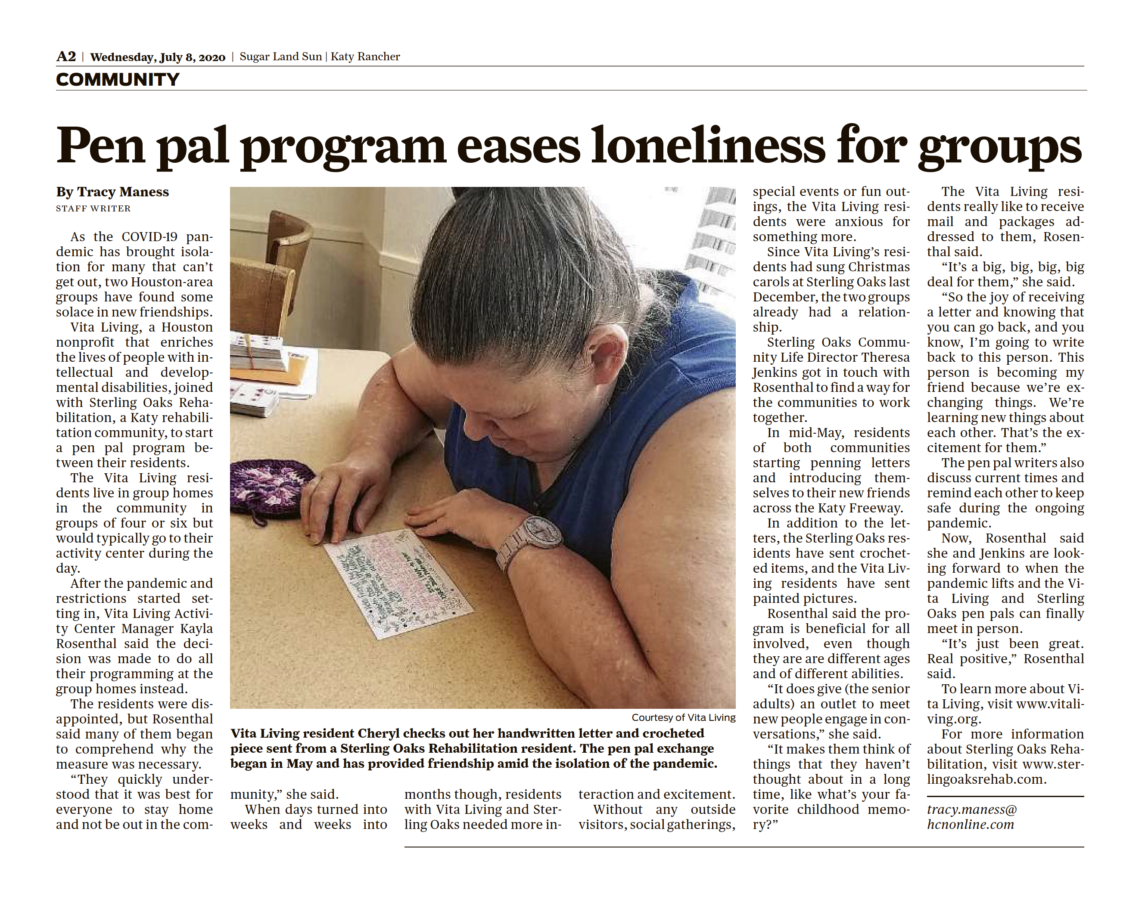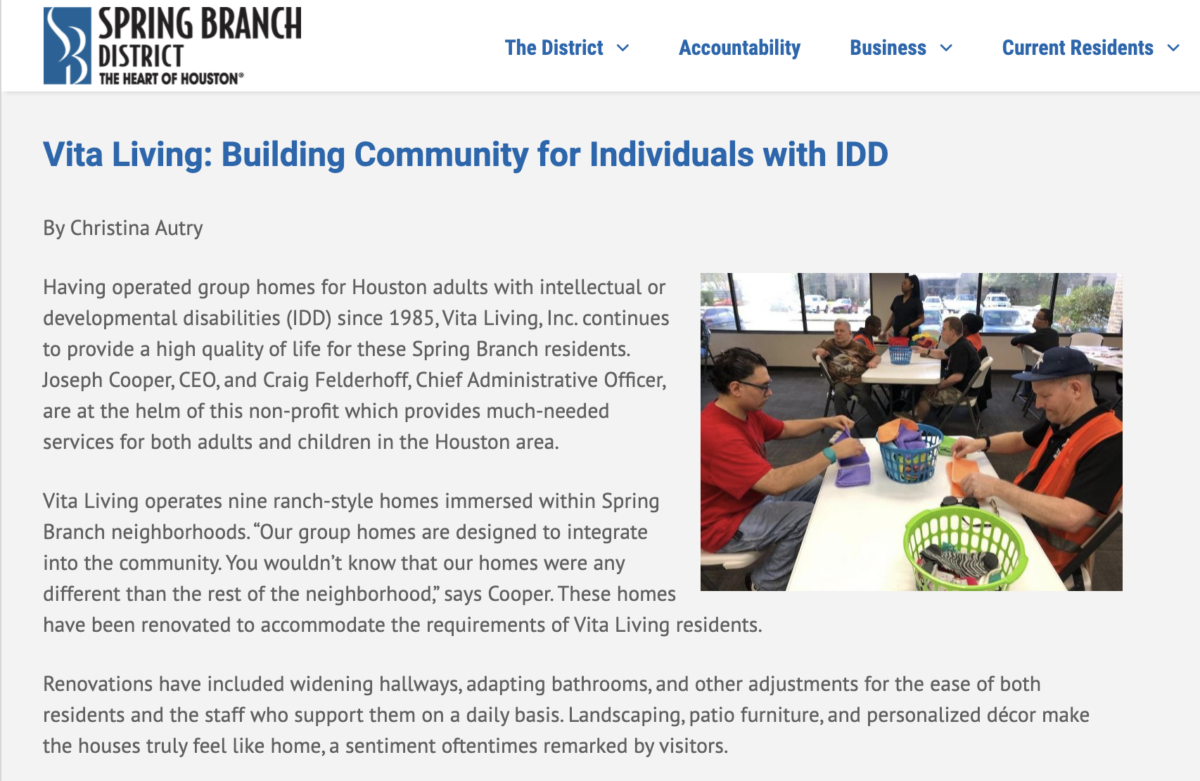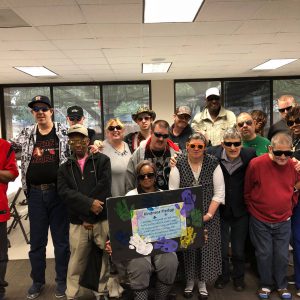| The 86th Legislative Session is in full swing and now is the time for all families and others who care about individuals with intellectual and developmental disabilities (IDD) to have their voices heard. As you have probably heard on the news, a large amount of attention during the session will focus on funding for public education and property tax reform. While these issues are certainly important, it will be critical for our voices to be heard to get fair attention to funding and services related to IDD services. Decisions during this session will cover the 2020-2021 biennium.
The House and Senate Committees that will address Health and Human Services Article II (which includes the IDD population) have been named and are outlined below:
House Appropriations Committee
Chair: Rep. Sarah Davis, Houston (served as Article II Chair last session)
Vice-Chair: Rep. J.D. Sheffield, Gatesville (served on Article II last session)
Rep. Phillip Cortez, San Antonio (new to Appropriations Committee)
Rep. John Turner, North Central Dallas (new to the Texas Legislature; elected 2018)
Rep. Cole Hefner, Mt. Pleasant (new to Appropriations Committee)
Link below giving specific information on each committee member
Appropriations Committee Member Information
Address for all House Members:
The Honorable Full Name
Texas House of Representatives
P.O. Box 2910
Austin, TX 78768-2910
Dear Representative Last Name
Senate Committee on Health and Human Services
Chair: Lois Kolkhorst, Senate District 18 (Brenham, Fort Bend, Victoria)
Vice-Chair: Charles Perry, Senate District 28 (Lubbock, San Angelo, Childress)
Dawn Buckingham, Senate District 24 (Abilene, Kerrville, Belton)
Donna Campbell, Senate District 25 (Austin, New Braunfels)
Pete Flores, Senate District 19 (Del Rio, Uvalde, Pecos)
Nathan Johnson, Senate District 16 (Dallas, Irving, Garland)
Borris L. Miles, Senate District 13 (Houston)
Beverly Powell, Senate District 10 (Fort Worth, Bedord, Mansfield)
Kel Seliger, Senate District 31 (Amarillo, Odessa)
Link below giving specific information on each committee member
Health & Human Services Committee Member Information
Address for all Senate Members:
The Honorable Full Name
Texas Senate
P.O. Box 12068
Austin, TX 78711
Dear Senator Last Name
How can you make a difference?
Write a letter to the committee members as well as your representatives
1. Tell your story (about your loved one with IDD).
· No longer than 2 type written pages.
· Address no more than three items of concern (summary list of issues below).
· Describe how the issue would impact your loved one.
2. Include digital photo of your loved one on letter (personalizes issue).
3. Include your name and contact information at the end of the letter to provide committee member/Senator/Representative opportunity to contact you to get more information.
Significant Issues of Concern to IDD service providers
(choose no more than 3 to address)
1. Recruiting and retaining a Capable and Competent Workforce (staff)
· Current funding limits ability for providers to offer living wage/benefits to workforce
· Impact of constantly changing direct support professionals on your loved one including Impact inconsistency plays on their welfare/progress. Emphasize the critical role of direct support staff in the day-to-day lives of the persons they support (group homes, day habilitation, supported employment, etc.). Focus on the role the Direct Support staff play in teaching and helping support individuals to achieve their highest level of independence. Turnover rate industry wide is between 35-53 %. Without sufficient staff, capacity is reduced and providers accrue costly overtime.
· Refrain from using word “attendant” to avoid confusion. Please refer to staff as “Direct Support Staff”.
2. Compliance with Federal HCBS Settings Rule (slatted to be required for providers March 2022)
· Proposed state plan for approval by Center for Medicaid Services would require a minimum of 51% of the service of Day Habilitation to occur in community settings that are not designed for individuals with disabilities. Costs will increase significantly for providers in community to add transportation (vehicles, drivers, and fuel) into day habilitation programming throughout the week.
· Health and Safety of individuals receiving services- additional staff will be required to maintain health and safety of individuals receiving services in community settings.
· Accommodations for individuals with physical challenges- community settings do not have adult size changing tables, transport lifts, etc. needed to maintain health and safety of the individuals while in community settings for extended periods of time.
3. Promoting Independence Slots and Reduction of Interest Lists
· Request to increase number of slots for HCS, TX Home Living, CLASS to serve more individuals (current recommendation is for 7,115 slots over the biennium)
· According to the Henry J. Kaiser Family Foundation, in 2016, the “interest list” of individuals with IDD waiting for HCBS services was 196,248 (https://www.kff.org/medicaid/issue-brief/data-note-data-do-not-support-relationship-medicaid-expansion-hcbs-waiver-waiting-lists/). That is the number of individuals needing services but waiting for funding to get the services. While some slots have been awarded since 2016, with the growth of the state it is reasonable to believe that the number of people currently waiting for services has increased over the past two years. While awarding 7,115 slots would help, it most certainly is not having the impact to reduce the overall numbers of Texans in need of assistance.
4. Texas ranks 49th among all states in efforts to serve individuals with IDD. This ranking is unchanged from the 2016 report and Texas has ranked 49th or 50th (out of 51) in every edition of the Case for Inclusion since the report was initially published in 2007. The biggest factors affecting Texas’ continued poor showing were lower than average marks in several key measures, including:
· Percentage of people with IDD served through Medicaid-funded waivers (82% compared to national average of 92%)
· Percentage of IDD expenditures allocated for supporting individuals in home-and community-based settings (68% compared to national average of 85%)
· Texas has the largest waiting list for Home and Community-Based Services in the country (196,248). Texas would have to expand its existing service offerings by 535% to match current levels of demand.
How can I find out who represents me?
1. Click the link below
2. https://fyi.capitol.texas.gov/Home.aspx
3. Enter your address
4. The site will tell you the Representative and Senator who represents you.
Resources
· Case for Inclusion 2019 Report with scorecards for each state (pg. 5 for findings related to Texas)
www.caseforinclusion.org
· The Community Attendant Recruitment and Retention Strategies Report
https://hhs.texas.gov/sites/default/files/documents/laws-regulations/reports- presentations/2018/rider-207-community-recruitment-retention-strategies-aug-2018.pdf
Information Courtesy of Reach Unlimited
|



























































 Most fortunately, our resident homes were not flooded, and thanks to the precautionary measures taken by our staff and their tireless commitment during the event, our residents remained safe and sound throughout the storm. Several of these same employees, however, clocked overtime hours at our group homes as their families faced life-or-death situations. Certain staff members and their families suffered major losses: homes and cars were flooded, and some families were obliged to evacuate to area shelters. While these staff members take needed time to repair damages and recover alongside their loved ones, the temporary reduction in staff is resulting in additional overtime costs that are not covered by fees for service. Vita-Living needs the support of our generous donors more than ever, in order to continue providing the highest standard of care in the wake of this citywide disaster.
Most fortunately, our resident homes were not flooded, and thanks to the precautionary measures taken by our staff and their tireless commitment during the event, our residents remained safe and sound throughout the storm. Several of these same employees, however, clocked overtime hours at our group homes as their families faced life-or-death situations. Certain staff members and their families suffered major losses: homes and cars were flooded, and some families were obliged to evacuate to area shelters. While these staff members take needed time to repair damages and recover alongside their loved ones, the temporary reduction in staff is resulting in additional overtime costs that are not covered by fees for service. Vita-Living needs the support of our generous donors more than ever, in order to continue providing the highest standard of care in the wake of this citywide disaster.






